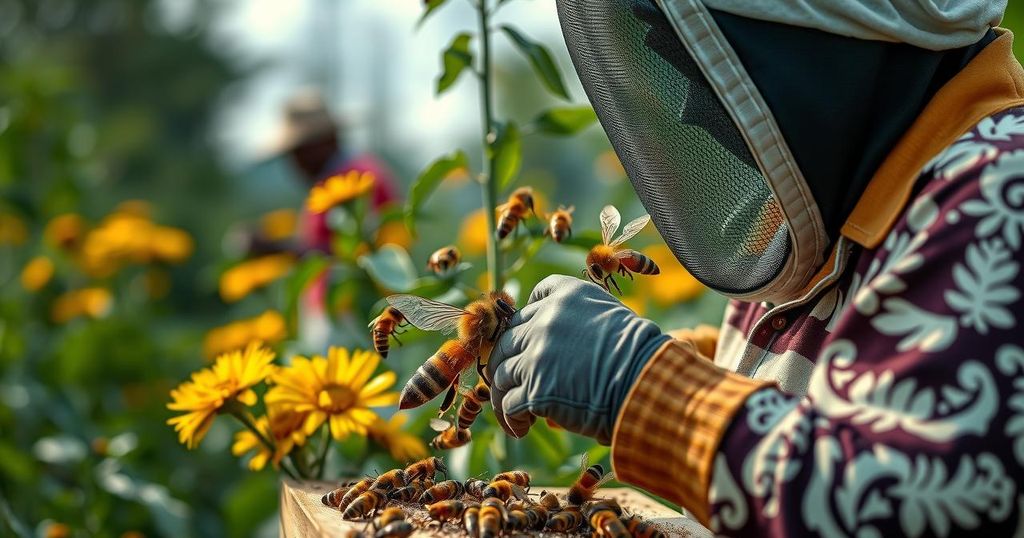Communities in Kenya are increasingly turning to beekeeping as a viable alternative livelihood in response to the severe impacts of climate change, particularly in arid regions. This sustainable practice not only assists in coping with climate-related challenges but also enhances food security and economic resilience. By promoting beekeeping, conservation experts are enabling these communities to adapt effectively to changing environmental conditions.
The adverse impacts of climate change, particularly in arid regions, have prompted communities in Kenya to explore sustainable livelihoods, with beekeeping emerging as a viable option. As highlighted by the U.N. Environment Program, those residing in drylands face severe challenges due to increasingly erratic weather patterns, including frequent droughts and severe flooding. With agriculture and livestock keeping becoming increasingly untenable, conservation experts are advocating for beekeeping as an alternative that not only supports livelihoods but also contributes positively to the environment by promoting pollination and biodiversity.
Beekeeping offers several benefits to communities facing climate-related challenges. Firstly, it requires fewer resources compared to other agricultural practices, making it particularly well-suited for areas where water scarcity prevails. Secondly, bees play a crucial role in pollinating crops, which enhances agricultural productivity and food security. Furthermore, honey production can serve as an additional income source, helping families to diversify their income streams and increase resilience against economic shocks brought about by climate change. Community engagement in beekeeping also fosters teamwork and collective action, thus enhancing social cohesion among community members.
The implementation of beekeeping initiatives in regions such as Garsen showcases how local populations are adapting to climate adversities. By equipping these communities with the necessary training and resources, conservation organizations are paving the way for a sustainable model that not only sustains livelihoods but also counters the effects of global warming. As communities witness the tangible benefits of beekeeping, there exists a growing recognition of its importance as a practical response to climate challenges.
In summary, the promotion of beekeeping in Kenya reflects a proactive measure to combat the harsh realities of climate change. It stands as a reminder that adaptability and innovation are critical as vulnerable communities seek pathways to secure their futures amidst environmental uncertainties. With support from local and international organizations, beekeeping could significantly bolster the resilience of these populations, fostering a new appreciation for sustainable practices.
The increasing impact of climate change on ecosystems and communities, particularly in arid and semi-arid regions, has become a pressing global concern. The U.N. Environment Program indicates that communities in dryland areas, such as those in Kenya, suffer the most from climate-related phenomena, including drought and flooding. Traditional livelihoods based on farming and livestock keeping are increasingly challenged, necessitating the exploration of innovative and sustainable alternatives that can provide economic stability and resilience.
In conclusion, beekeeping emerges as a critical adaptive strategy for communities in Kenya facing the ramifications of climate change. By adopting this alternative livelihood, individuals can enhance their economic resilience while contributing to environmental sustainability. The evolution towards such practices emphasizes the need for supportive frameworks that enable vulnerable populations to thrive despite climatic uncertainties. The success of beekeeping initiatives can pave the way for similar strategies in other regions grappling with the impacts of climate change.
Original Source: www.voaafrica.com






